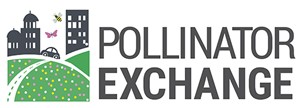
The newly launched Pollinator Exchange is your one-stop resource
With pollinator numbers in decline in rural areas, there has been increasing focus on the many ways in which towns and cities can be made more pollinator-friendly. Urban green spaces such as amenity grassland in parks, gardens, verges or roundabouts offer plenty of opportunities for pollinators, provided they are managed correctly.
While much academic research has gone into this field in recent years, this is not always readily available to the people in charge of managing urban green spaces. Local councils, highway agencies and other authorities need clear, evidence-based practical advice to turn our towns and cities into places abuzz with pollinators.
The Pollinator Exchange website, www.pollinatorexchange.org developed by Bournemouth University, fulfils this role. It provides an interactive database of the latest research, practical guidance and projects connected to pollinators in urban areas. All resources come with a brief summary of their main points, allowing those with limited time to follow recent developments and implement key recommendations. Website users can browse the existing catalogue and also add their own resources, thereby contributing to ongoing knowledge exchange on this important topic.
Gill Perkins, Chief Executive at the Bumblebee Conservation Trust, was one of many staff from conservation and land management organisations who generously gave their time to help test and develop the website. She said: ‘Bumblebee Conservation Trust recognises that urban environments are becoming crucially important to reverse the decline in pollinators. The Pollinator Exchange site will facilitate communication and knowledge exchange between groundsmen and contractors, biodiversity officers and everyone who influences decisions on what to grow, making it a vital resource for all to learn best techniques.’
The Pollinator Exchange was funded through the Higher Education Funding Council for England’s knowledge exchange programme: the Higher Education Innovation Funding scheme. (HEIF 5+1 August 2015 – July 2016.)
Please visit www.pollinatorexchange.org for a closer view.
For more information on this project please contact the Project Lead Kathy Hodder.
 Robot bees vs real bees – why tiny drones can’t compete with the real thing
Robot bees vs real bees – why tiny drones can’t compete with the real thing










 New Nepal scoping review on maternal & neonatal health
New Nepal scoping review on maternal & neonatal health Fourth INRC Symposium: From Clinical Applications to Neuro-Inspired Computation
Fourth INRC Symposium: From Clinical Applications to Neuro-Inspired Computation Writing policy briefs
Writing policy briefs Upholding Excellence: The Concordat to Support Research Integrity
Upholding Excellence: The Concordat to Support Research Integrity ECR Funding Open Call: Research Culture & Community Grant – Application Deadline Friday 12 December
ECR Funding Open Call: Research Culture & Community Grant – Application Deadline Friday 12 December MSCA Postdoctoral Fellowships 2025 Call
MSCA Postdoctoral Fellowships 2025 Call ERC Advanced Grant 2025 Webinar
ERC Advanced Grant 2025 Webinar Horizon Europe Work Programme 2025 Published
Horizon Europe Work Programme 2025 Published Horizon Europe 2025 Work Programme pre-Published
Horizon Europe 2025 Work Programme pre-Published Update on UKRO services
Update on UKRO services European research project exploring use of ‘virtual twins’ to better manage metabolic associated fatty liver disease
European research project exploring use of ‘virtual twins’ to better manage metabolic associated fatty liver disease